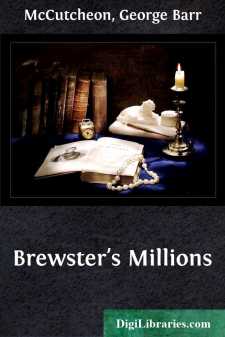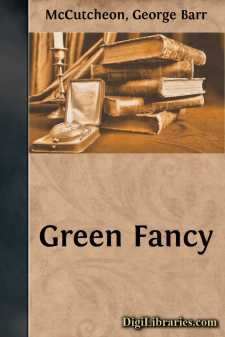Categories
- Antiques & Collectibles 13
- Architecture 36
- Art 48
- Bibles 22
- Biography & Autobiography 813
- Body, Mind & Spirit 142
- Business & Economics 28
- Children's Books 17
- Children's Fiction 14
- Computers 4
- Cooking 94
- Crafts & Hobbies 4
- Drama 346
- Education 46
- Family & Relationships 57
- Fiction 11829
- Games 19
- Gardening 17
- Health & Fitness 34
- History 1377
- House & Home 1
- Humor 147
- Juvenile Fiction 1873
- Juvenile Nonfiction 202
- Language Arts & Disciplines 88
- Law 16
- Literary Collections 686
- Literary Criticism 179
- Mathematics 13
- Medical 41
- Music 40
- Nature 179
- Non-Classifiable 1768
- Performing Arts 7
- Periodicals 1453
- Philosophy 64
- Photography 2
- Poetry 896
- Political Science 203
- Psychology 42
- Reference 154
- Religion 513
- Science 126
- Self-Help 84
- Social Science 81
- Sports & Recreation 34
- Study Aids 3
- Technology & Engineering 59
- Transportation 23
- Travel 463
- True Crime 29
The Husbands of Edith
Description:
Excerpt
CHAPTER I
HUSBANDS AND WIFE.
Brock was breakfasting out-of-doors in the cheerful little garden of the Hôtel Chatham. The sun streamed warmly upon the concrete floor of the court just beyond the row of palms and oleanders that fringed the rail against which his Herald rested, that he might read as he ran, so to speak. He was the only person having déjeuner on the "terrace," as he named it to the obsequious waiter who always attended him. Charles was the magnet that drew Brock to the Chatham (that excellent French hotel with the excellent English name). It is beside the question to remark that one is obliged to reverse the English when directing a cocher to the Chatham. The Paris cabman looks blank and more than usually unintelligent when directed to drive to the Chatham, but his face radiates with joy when his fare is inspired to substitute Sha-t'am, with distinct emphasis on the final syllable. Then he cracks his whip and lashes his sorry nag, with passive appreciation of his own astuteness, all the way to the Rue Daunou. The street is so short that he almost invariably takes one to it instead of to the hotel itself. But one must say Sha-t'am!
Charles was standing, alert but pensive, quite near at hand, ready to replenish the bowl with honey (Brock was especially fond of it), but with his eyes cocked inquiringly, even eagerly, in the direction of an upstairs window across the court, beyond which a thoughtless guest of the establishment was making her toilette in blissful ignorance of the fact that the flimsy curtains were not tightly drawn. Brock had gone to the Chatham for years just because Charles was a fixture there. Charles spoke the most execrably picturesque English, served with a punctiliousness that savoured almost of the overbearing, and boasted that he had acquired the art of making American cocktails in the Waldorf during a five weeks' residence in the United States.
It was a lazy morning. Brock was happy. He was even interested when a porter came forth and unravelled a long roll of garden hose, with which he abruptly began to splash water upon the concrete surface of the court without regard for distance or direction. Moreover, he proceeded to water the palms at Brock's elbow, operating from a spot no less than twenty feet away. He likewise was casting inquiring glances at divers windows—few if any at the plants—until the faithful Charles restored him to earth by means of certain subdued injunctions and less moderate gesticulations, from which it could be readily gathered that "M'sieur was eating, not bathing." Whereupon the utterly uncrushed porter splashed water at right angles, much to Brock's relief, while all his fellow porters, free or engaged, took up the quarrel with rare disregard for cause or justice. A femme de chambre, from a convenient window, joined in the hubbub without in the least knowing what it was all about. Monsieur's comfort must be preserved: that seemed to be the issue in which, at once, all were united. "M'sieur will pardon the boy," apologised Charles in deepest humility, taking much for granted. "It will be very warm to-day. Your serviette, M'sieur—it is damp. Pardon!" He flew away and back with another napkin. "Of course, M'sieur, the Chatham is not the Waldorf," he announced deprecatingly. "Parbleu," beating himself on the forehead, "I forgot! M'sieur does not like the Waldorf. Eh, bien, Paris is not New York, no." Having sufficiently humbled Paris, he withdrew into the background, rubbing his hands as if he were cleansing them of something unsightly. Brock spread one of the buttered biscuits with honey and inwardly admitted that Paris was not New York.
He was a good-looking chap of thirty or thereabouts, an American to the core,—bright-eyed, keen-witted, smooth-faced, virile. From boyhood's earliest days he had spent a portion of his summers in Europe. Two or three years of his life had been employed in the Beaux Arts,—fruitful years, for Brock had not wasted his opportunities. He had gone in for architecture and building. To-day he stood high among the younger men in New York,—prosperous, successful, and a menace to the old cry that a son of the rich cannot thrive in his father's domain....












